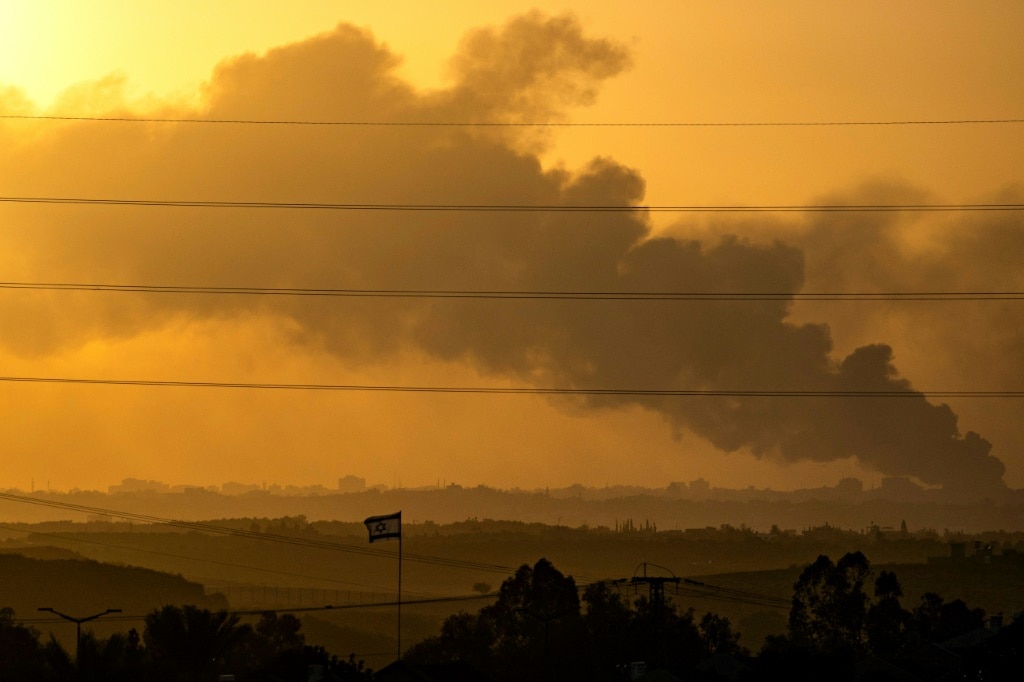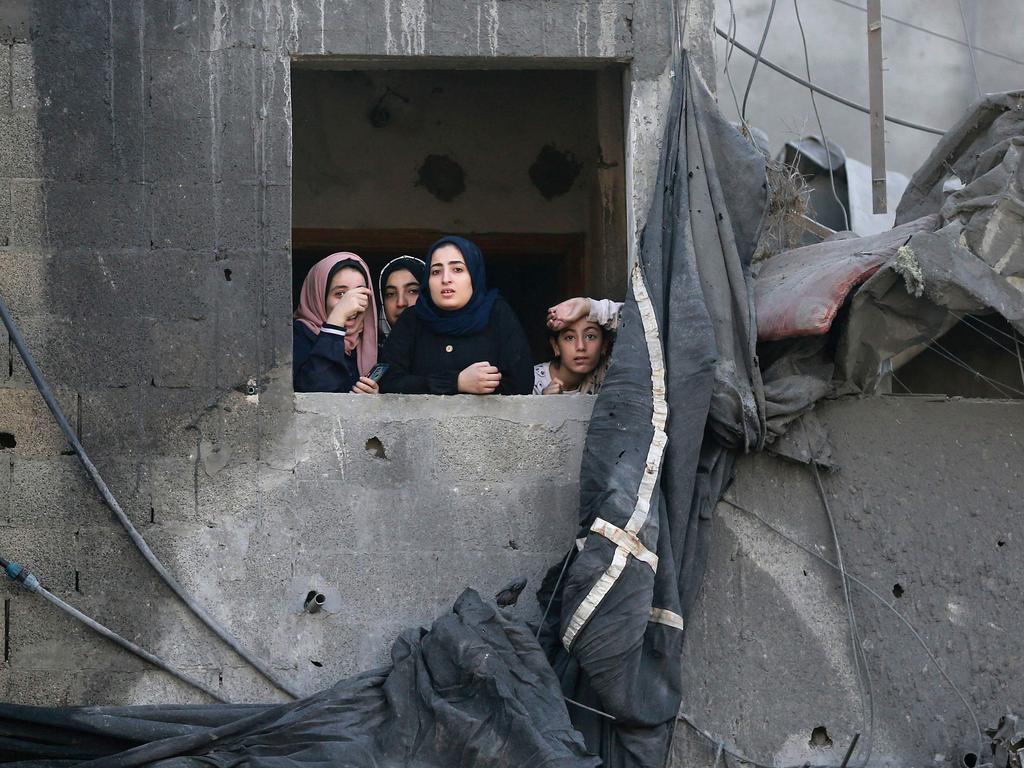Defence of jihadists on campus reflects absurdity of ‘decolonisation’ myth


The images are appalling, like so many on that day. But they feature not at all in the protests against Israel’s unavoidable military response to them. Rather, those kidnapped at the festival, and still held in unimaginable conditions, have had posters urging their release torn down – by many of the same people that would attend similar music festivals in other liberal democracies.
Two hundred and sixty of the 1400 Israelis murdered by Hamas had been at Su`pernova. ‘They wanted to dance in peace,” was the Rolling Stone headline. “And they got slaughtered.”
An anti-Israel open letter was circulated this week across Australian university campuses. It made no mention of this terrible day. Instead, it chastised its readers “to stand on the right side of history by condemning Israel’s genocidal attack against the people of Palestine”.
Why such exclusively one-way empathy? Surely the genocidal intent is the preserve of the terrorists? The 1988 Hamas charter calls for a Jew-free Palestine – the effect of which would make the whole Middle East judenrein.
All good people are right to mourn the loss of lives in Gaza. But a one-way compassion, designed to compromise Israel’s self-defence, would foster a more deadly scenario for Gazans and Israelis, the former oppressed by Hamas, the latter victim to their militarised anti-Semitism. Our university campuses, especially at the end of semester, often vibrate like the Supernova festival. What explains the silence and inaction of the campus Left on the massacring of its rainbow allies in Israel? And by a terrorist organisation recycling the anti-Semitism of 1930s Germany?
What do progressives imagine are Hamas’s preferred pronouns? Why have university trade unions stopped representing workers, and instead become implicated in Hamas’s sectarian cause? How do we explain the Left’s embrace of a position designed to weaken, if not destroy, the only liberal democracy in the Middle East?
Let me suggest several overlapping explanations – and conclude with a reason to be cheerful.
Israel wasn’t always hated by the Left. The music festival was near the Kibbutz Be’eri. These communes used to represent an ideal for many Western progressives, a victory for communalism over capitalism, miniature socialised, green utopias. A caricature, of course. But a seductive one for many on the Left in the 1950s and ’60s.

That shifted for two reasons. First, Israel started beating its Arab opponents – in 1967 and 1973 especially. This offended an academic discourse, popularised by Edward Said, that Muslims were oppressed by the West and in need of “decolonisation”. Israel, a plucky little nation that had proved Adolf Hitler so wrong, started to morph into an oppressor in the progressive imagination.
(Few things offend the Left more than a successful capitalist state with secure borders – a sin of which Australia is abundantly guilty, and must atone.)
Second, Israel’s security began to depend on American largesse. In leftist thinking, this fused Israel to an American imperial project, requiring cleansing in university lecture halls. The manifestation of this is especially vogue in the baffling deference to “decolonisation” in too much research and teaching. Its impact on an understanding of the Middle East has been pernicious.
The Left has been essentially silent and inert when it comes to intra-Muslim war. In 1980-88, one million Muslim men, many of them boys, died on the battlefields of the Iran-Iraq war.
There were no open letters from lecturers about the half a million Iraqis killed by Saddam Hussein in the decade before the 2003 US-led war to remove him. Indeed, some of the largest marches in history were by anti-war progressives, in Melbourne, Sydney and London, determined to keep him in power.
There has been no NTEU propaganda campaign demanding our vice-chancellors condemn Bashir al-Assad for killing 200,000 Muslims (23,000 of them children) in Syria since 2011. Silence on the tyranny of Libya’s Muammar Gaddafi was long and deep on the Left; the still ongoing chaos following his removal does not consume Guardian editorials.
The Israel-Palestine conflict is dwarfed, even in this moment of intensity, by Muslim-on-Muslim bloodletting across centuries. Only “crimes” by Israeli “settler colonialists” against “indigenous Palestinians” counts in the academic decolonisation program. It is as if a faulty reading of US history – as exclusively about white enslavement of black people – were superimposed on to every global issue where the West has a stake.
We should spell decolonisation with a “z” to affirm just how this American progressive idea has colonised so much intellectual space in the West.
The marination of a generation of students in this postcolonial discourse explains why the horrors visited upon Israel last month got such muted sympathy on our campuses. If Israel is the oppressor, any resistance by the oppressed gets a free pass.
Is there hope for higher education? Yes, abundant hope. As a rule of thumb, the loudest voices will support the worst ideas on behalf of the fewest people. Far better they are contained on a campus, writing commitment-free open letters.
In my experience, one-third of all academics will bend leftward and back fashionable causes. Another third will resist, often (too) silently. A further third won’t care either way and just want a quiet life.
I think that is a tenable balance and representative of a robust, if sometimes obscured, dispositional diversity. Indeed, the ahistoricism of the “Hamas doesn’t exist in a vacuum” approach, and the cognitive dissonance of progressives defending jihadists who would destroy them, means we might have entered the beginning of the end of this academic orthodoxy. Peak woke.
The “identity synthesis”, an approach that reduces everything to notions of group identity and hierarchy, is not only ahistorical, as the absurd designation of Israel as a settler colony demonstrates, it is also really dull to use and study. Students, coddled by its proponents for too long, are slowly clocking on to this.
When the most successful and freest state in the Middle East becomes the white devil of identity politics, we are at a civilisational moment. The great commonsense counter-revolution against this nonsense has started. Its first frontline was the Supernova music festival.
Timothy J. Lynch is professor of political science at the University of Melbourne.






The Supernova music festival was about as progressive and hip as any you would see in Melbourne, London, Berlin, or California. Billed as “a journey of unity and love”, young men and women, pro-Palestine by inclination, many LGBTQI+ by orientation, mostly anti-Netanyahu, attended this Glastonbury in the desert. They were the first “settler colonialists” to be murdered by Hamas on October 7.